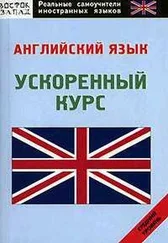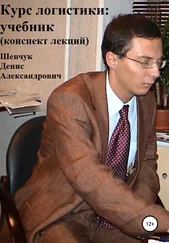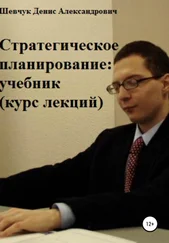• That one of the easiest and quickest ways to get ahead is by consciously building up your knowledge of words.
• That the vocabulary of the average person almost stops growing by the middle twenties.
• That from then on it is necessary to have an intelligent plan if progress is to be made. No hit-or-miss methods will do.
It has long since been satisfactory established that a high executive does not have a large vocabulary merely because of those opportunities of his positions. That would be putting the cart before the horse. Quite the reverse is true. His skill in words was a tremendous help in getting him his job.
It has been discovered that the one and only common characteristic of outstandingly successful people is an extensive knowledge of the exact meaning of English words.
Vocabulary is one indication of intelligence. Learning power measurably sharpens when vocabulary increases. Here is the proof.
Two classes in a high school were selected for an experiment. The ages and background of the members of both groups were the same, and each group represented a similar cross section of community. One, the control class, took the normal courses. The other class had an additional, special, and rigorous vocabulary training. At the end of the period the grades of the students in the vocabulary class surpassed the grades of the members of the control group, not only in English, but in every other subject, including mathematical and sciences.
Words are the tools of thinking . It naturally follows, then, that the more words you have at your command, the clearer and accurate your thinking will be.
Words are medium of exchange , the coin with which you do business with all those around you. With words you relate people, communicate your feelings and thoughts to them, persuade them, control them. In short, through words you shape your own destiny, for your words are your personality; your vocabulary is you.
How do words treat you? Are you comfortable with them? Do they easily come to you? When you write and speak, do your words paint the sort of picture of you that will do you the most good in the highly competitive world? Does your language usually present a true reflection of your mind, your emotions, and your personality? Or does it sometimes betray and blur your thoughts? Do people occasionally misunderstand you? Or can you compel them to listen, react, obey?
From now on we want you to look at words intently, to be inordinately curious about them and to examine them syllable and syllable, letter by letter. They are your tools of understanding and self-expression. Collect them. Keep them in condition. Learn how to handle them. Develop a fastidious, but not a fussy, choice. Work always toward good taste in their use. Train your ear for their harmonies .
We urge you not to take words for granted just because they have been part of your daily speech since childhood. You must examine them.
Words are not dead things. They are fairly wriggling with life. They are exciting and mysterious tokens of our thoughts, and like human beings, they are born, come to maturity, grow old and die, and sometimes they are even reborn in a new age. A word, from its birth to its death, is a process, not a static thing.
Words, like living trees, have roots, branches, and leaves. If the roots are the origin of words and the branches are the word families that stem out of them, the leaves of this language tree would be the words themselves and their meaning.
Like everyone else, you want certain things from life. No matter what those benefits are, or what particular way you have chosen to go about getting them, you know that your first and most effective means will be the words you use.
In short, the satisfaction and the success you get out of life depend very greatly on the skill with which you communicate your needs, your desires, your opinions to others.
Words are explosive. Phrases are packed with TNT. A single word can destroy a friendship, can start or end a mortal battle, can land a large order. The right words in the mouth of clerks have quadrupled the sales of a department store. The wrong words used by a campaign orator have lost an election. Words have changed the direction of history. Words can also change the direction of your life.
Один из способов тренировать ин. язык – обучать иностранцев русскому языку, русской литературе, философии и истории России (для чего стоит повышать их знание).
Денис Шевчук
Замечено, что многие люди не знают элементарных правил русского языка, например:
1. Количество кавычек всегда должно быть четным, как скобки в математике.
Рядом стоящие кавычки могут быть двух видов – «…» и «…» (лапки и елочки).
Правильно: «слова „слова“» или «слова „слова“»
Неправильно: «слова»» и "слова «слова»
Эти ошибки есть даже в названиях крупных фирм и некоторых статьях и книжках.
2. Если в конце предложения есть информация в скобках, точка ставится после скобок, не ставится перед скобками и внутри перед закрывающей скобкой.
Правильно: слова (слова).
Неправильно: слова. (слова.)
LEARNING HAPPENS TO BE A DIFFICULT PROCESS: NO PAIN, NO GAIN.
Менеджер – наемный управленец, начальник!
Если у вас нет ни одного подчиненного – вы не менеджер,
а максимум специалист!
Денис Шевчук
Your vocabulary
Economy
– a system according to which the money, industry, and trade of a country or region are organized.
– a country’s economy is the wealth that it gets from business and industry.
– careful spending or the use of things in order to save money.
– large-size packages of goods which are cheaper than the normal sized packages on sale.
Economic
– concerned with economics and with the organization of the money, industry, and trade of a country, region, or social group.
– relating to services, businesses, etc. that produce a profit.
Economical
– something that is economical does not require a lot of money to operate.
– using the minimum amount of time, effort, language, etc. that is necessary.
Economics
– the study of the production of wealth and the consumption of goods and services in a society, and the organization of its money, industry, and trade.
Economist
– an expert or student of economics.
Economize
– save money by spending it very carefully and not buying expensive things.
Economic Institution
– a physical or mental structure that significantly influences economic decisions
Economic policy
– an action (or inaction) taken, usually by government, to influence economic events.
Economic model
– simplified representation of reality.
Читать дальше












